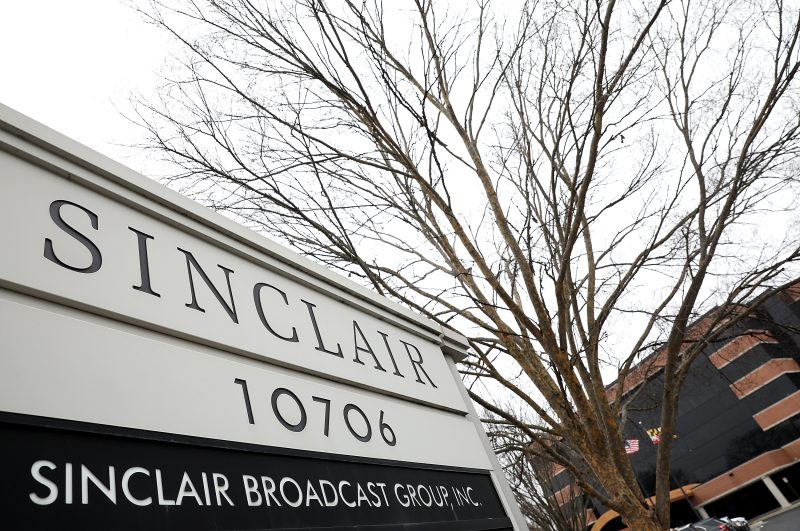Sinclair’s Recipe for TV News: Crime, Homelessness, Illegal Drugs
In today’s fast-paced and highly competitive media landscape, news outlets are constantly searching for ways to garner attention and engage viewers. However, there is a fine line between responsible journalism and sensationalism, and some media companies seem to have crossed that line. One such company is Sinclair Broadcast Group, a powerful conglomerate that owns and operates nearly 200 TV stations across the United States. Sinclair’s recipe for TV news seems to include a heavy dose of fear-mongering, with crime, homelessness, and illegal drug use frequently taking center stage.
Crime is a staple ingredient in Sinclair’s news recipe. Tune in to any of Sinclair’s local news stations, and you’re likely to be bombarded with stories about various crimes happening in your community. While reporting on crime is essential for public safety awareness, Sinclair has been accused of sensationalizing such stories to boost ratings. By focusing on shocking and disturbing crimes, Sinclair grabs viewers’ attention, but at the same time, it perpetuates fear and creates a distorted perception of the overall safety of communities.
Homelessness is another recurring element in Sinclair’s recipe. While homelessness is undoubtedly a pressing issue that deserves attention, Sinclair seems to exploit it for their own gain. Rather than offering in-depth analysis and exploring the complex causes and potential solutions to homelessness, Sinclair tends to present a narrow and one-sided narrative. By framing homelessness solely as a problem of personal responsibility or criminal behavior, they contribute to the stigmatization and dehumanization of those experiencing homelessness.
Illegal drugs, especially the opioid crisis, is a third crucial component of Sinclair’s news recipe. Once again, covering the opioid crisis is undoubtedly important, given its devastating impact on individuals and communities. However, Sinclair’s approach often lacks nuance, perpetuating stereotypes and promoting a skewed understanding of the issue. By focusing primarily on the criminal aspects of drug addiction and offering sensationalized stories, Sinclair fails to highlight the root causes of addiction and the desperate need for comprehensive solutions.
The danger of Sinclair’s news recipe lies in its potential to shape public perception and influence public policy. By prioritizing sensationalism and fear-mongering, Sinclair risks turning viewers against their own communities, creating an atmosphere of fear and divisiveness. Moreover, their one-sided approach to complex issues like crime, homelessness, and illegal drugs can hinder progress by discouraging thoughtful dialogue and comprehensive problem-solving.
As consumers of news, it is crucial that we recognize the impact media companies like Sinclair have on our society. By critically evaluating the news we consume and seeking out diverse perspectives, we can guard against the influence of sensationalism and fear. Additionally, supporting independent and responsible journalism can help counterbalance the unsettling trend perpetuated by Sinclair and other media conglomerates.
In conclusion, Sinclair’s recipe for TV news seems to consist of a mix of crime, homelessness, and illegal drugs, all presented through a sensationalized and fear-driven lens. While these topics deserve coverage, it is essential to approach them responsibly and thoughtfully. As consumers of news, let us strive for a more balanced and nuanced understanding of the issues affecting our communities, and demand media outlets to rise above the manipulative tactics employed by Sinclair and others in the pursuit of ratings.



























